News
-
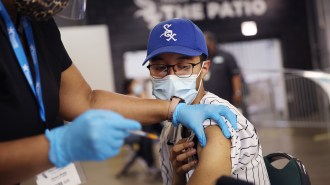 Health & Medicine
Health & MedicineThe benefits of COVID-19 mRNA vaccines outweigh the risk of rare heart inflammation
A CDC group says the benefits of the Pfizer and Moderna shots outweigh the risk of myocarditis and pericarditis in adolescents and young adults.
-
 Health & Medicine
Health & MedicineHow relocating musicians can reduce COVID-19 risk at concerts
Based on simulations of how air flows across a stage, the Utah Symphony rearranged where its musicians sit and boosted ventilation.
-
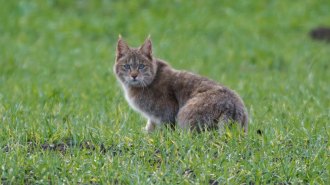 Animals
AnimalsChinese mountain cats swap DNA with domestic cats, but aren’t their ancestors
DNA suggests little-studied Chinese mountain cats have been rendezvousing with pet cats on the Qinghai-Tibetan Plateau since the 1950s.
-
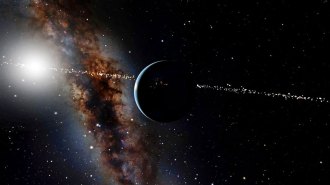 Astronomy
AstronomyAny aliens orbiting these 2,000 stars could spot Earth crossing the sun
Alien astronomers in those star systems could discover Earth the way we find exoplanets: by watching for a dip in starlight.
-
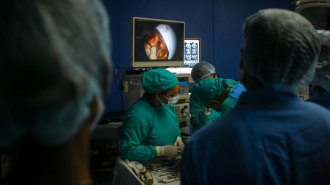 Health & Medicine
Health & MedicineHow COVID-19 created a perfect storm for a deadly fungal infection in India
Amid the chaos of the COVID-19 pandemic, numbers of rare but dangerous “black fungus” infections have skyrocketed in the country.
By Pratik Pawar -
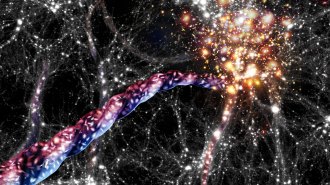 Space
SpaceCosmic filaments may be the biggest spinning objects in space
Filaments of dark matter and galaxies, which can stretch millions of light-years, might help astronomers figure out the origins of cosmic spin.
-
 Earth
EarthA satellite’s view of a deadly 2019 eruption could improve volcano monitoring
Monitoring volcanoes from space could enhance scientists’ understanding of, and ability to predict, even small eruptions.
By Nikk Ogasa -
 Health & Medicine
Health & MedicineHow one medical team is bringing COVID-19 vaccines to hard-to-reach Hispanic communities
Unidos Contra COVID’s Spanish-speaking volunteers go to where Philadelphia’s Hispanic people gather, giving shots and addressing concerns one-on-one.
-
 Climate
ClimateCollapse may not always be inevitable for marine ice cliffs
Runaway collapse of ice cliffs could dramatically boost sea level. But these cliffs may not be so vulnerable, new simulations suggest.
By Sid Perkins -
 Quantum Physics
Quantum PhysicsPhysicists used LIGO’s mirrors to approach a quantum limit
Using LIGO’s laser beams to reduce jiggling rather than detect gravitational waves, scientists have gotten closer to the realm of quantum mechanics.
-
 Astronomy
AstronomyDust and a cold spell on Betelgeuse could explain why the giant star dimmed
Scientists had two options to explain Betelgeuse’s weird behavior in late 2019. They chose both.
-
 Science & Society
Science & SocietyMoral judgments about an activity’s COVID-19 risk can lead people astray
People use values and beliefs as a shortcut to determine how risky an activity is during the pandemic. Those biases can lead people astray.
By Sujata Gupta